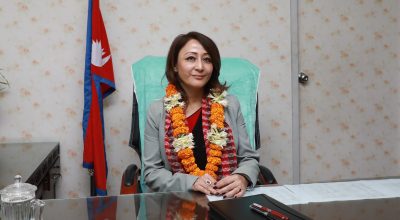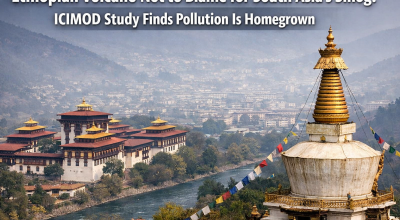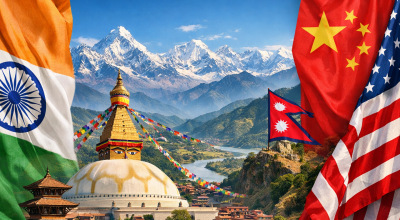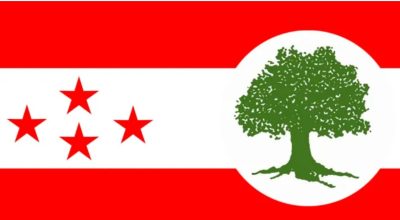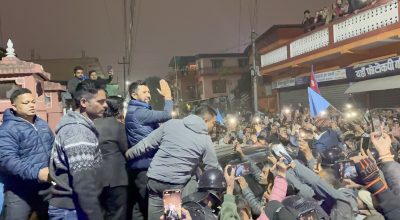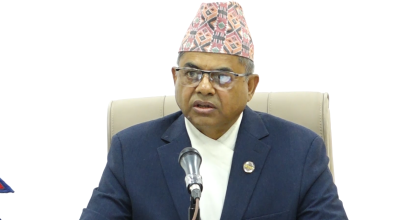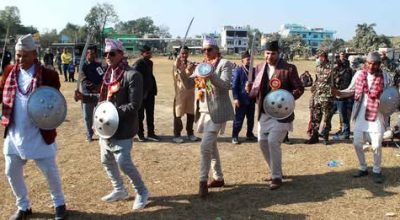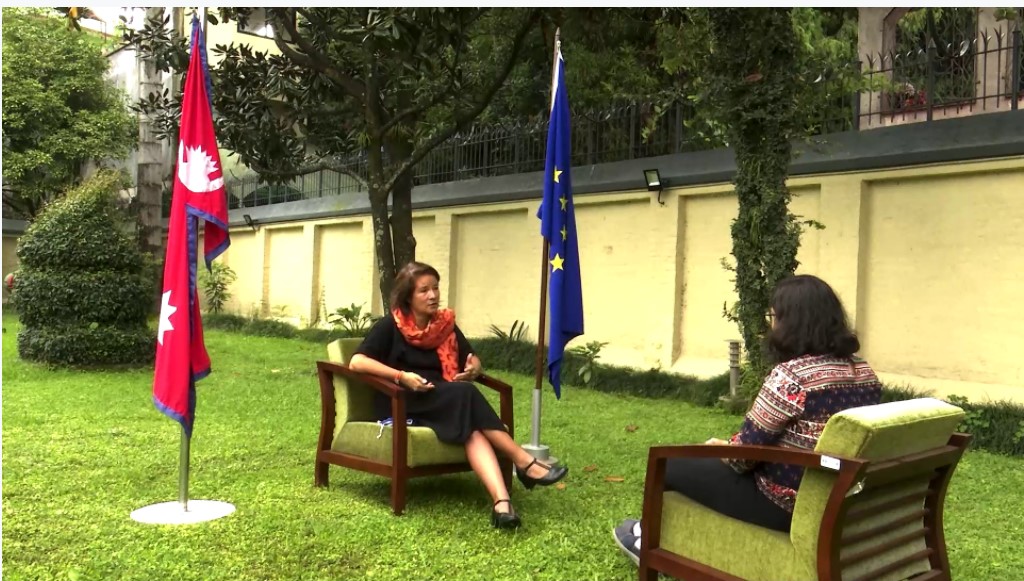
Nona Deprez is the Ambassador for the European Union to Nepal. She has recently spoken to the NEFEJ Aankhijhyal Team, an environmental awareness audio-visual magazine. In the context of Nepal’s environmental challenges, she has elaborated the activities of the European Union in Nepal. Excerpts:
Aankhijhyal: First of all, let us start by talking about a European Green Deal which basically is a project to help Europe to be the first climate-neutral continent.
Nona Deprez: Obviously I am very proud of the European Union’s leadership which is leading the world to become the first climate neutral continent in the world by 2050. We are hoping to decrease our emissions by 55% by 2030 which is the package called Fit for 55. For us the European Green Deal is really just a very modern growth strategy. We think that the recovery from COVID-19 can go hand in hand and should go hand in hand with a just transition to climate neutral economy and societies for the benefit of our planet, of our environment and the health of our people. So obviously we cannot do this on our own.
Europe is responsible for 8% of Green House Gas Emissions. What we want to do is to inspire other partners and other continents to follow our example. And to work together on our better planet, on building by better and greener but also leaving no one behind.
What are the key areas of EU cooperation to help Nepal protect its environment, with special focus on climate change?
Nona: We have just recently signed the Kathmandu Declaration. For us, that is really a very strong commitment to work together to build a greener, resilient inclusive Nepal post COVID in terms of economic recovery. So we want to work together, all of us together. So specifically the European Union, we are currently finalizing our multi- channel indicative program for 21/27.
And one of the top priorities in that will be Green Resilient Inclusive Development (GRID). We already want to work on renewable energy and also on Energy Efficiency. Despite Energy poverty here in Nepal, there is also a lot of energy inefficiencies. So which could lead to green jobs and economic growth for Nepal. That is one important aspect of our work together. We are hoping to work together on forest development.
Probably working with the European Investment Bank, maybe with the World Bank. So, we are not doing this on our own but with the Nepali authorities. We will also continue to work on Human Capital Development where we work on education and where we will try to focus on technical and vocational education and training mostly in green sectors. So, maybe looking at sustainable tourism, at sustainable construction, and also at climate smart agriculture. Maybe I also want to say one other thing is that what is also very important, what we realized in Europe that this transition has to be fair.
You know, vulnerable people will be more impacted by climate change. And they need more support to mitigate the effects of climate change. So in Europe we are setting up a social fairness fund to support these vulnerable people.
So we have to work on this with business, with civil society, with political parties and with the people of Nepal, with the youth of Nepal and the women of Nepal so that everyone is really involved.
How do you think Nepal could benefit from the European Green Deal? Could you please highlight some activities that have been implemented at present?
Nona: So we have been working very closely with Nepal. We support Nepal in the implementation of its nationally determined contributions which are very ambitious, which I think. Yesterday I was at an event on the seeing off of the COP26 Nepal delegation hosted by her excellency, the UK Ambassador to Nepal Nicola Pollitt.
And there the honorable minister for the Environment also said that Nepal could be climate-neutral well ahead of 2050. That, I think is a very strong commitment, very big ambition that the European Union wants to support Nepal with. I think we have to work more on Climate finance. I think the European Union as team Europe which is the EU plus its Member states together. We already provide 23 billion Euros per year in climate finance.
Have you seen and read the Nationally Determined Contributions (NDCs) prepared by the Nepal’s Ministry of Forest and Environment?
Nona: Yes Of course, I think it is a very important document. It’s very ambitious. Nepal is going to finalize its long term strategy towards climate neutrality. It has a good mix of energy, of transport, of working with forestry. It also means that we need to work with the people of Nepal because they are the ones that are the most vulnerable and are going to suffer most from climate action. But that are also most conscious of things that we can do altogether. But also that each one can do at their own individual level. So I think Nepal’s NDC plan is excellent. The issue I saw often everywhere in the world is in its implementation. That’s the most crucial part of it.
EU in July this year has unveiled the most ambitious plan yet to tackle climate change. Could you shed light on what is it all about?
Nona: What European Union is proposing is no less than a revolution. And this is really what is needed. Because we need a complete change in the way we live, the way we produce and the way we consume, the way we travel, the way we live. So it is a whole of society approach.
So it has fourteen very ambitious measures looking at transport, having renewables in the energy mix but also fighting against energy inefficiencies. We are looking at making our buildings use less energy. We want to renovate our buildings. I think that is also an area where Nepal could learn from our experience. We are also looking at protecting biodiversity working with nature, there again, this is something that could be really important for Nepal.
So we really want to work with nature-based solutions where Nepal has a wealth of knowledge that I think Nepal is maybe losing somehow becoming modern. But we should get back to earth and to nature.
Also, what is very important is circular economy. As people, we are consumers and we have a huge power to change the ways that our companies are producing, to put pressure on the companies, to produce in a more environmentally friendly way.
We also have the three R’s which is reduce, reuse and recycle. And those are areas where I also think that Nepal could really learn from our experience. And leap frog. Don’t make the same mistakes as we have made but go immediately to a cleaner society. You have come from a very clean society where you did not use a lot of plastics. Suddenly everyone in Nepal is using plastic bags. But it doesn’t have to be. You can immediately jump to that society without plastic. So I think that is also an area where we want to work with Nepal.
How do you think Nepal could benefit from COP26?
Nona: I think Nepal could really be a leader for least developed countries. But also because Nepal has this unique position in the Himalayas as a mountain country in the Hindu Kush Himalaya Region. I think this region is said to lose most from climate action, from climate change. It is very vulnerable. You have many water resources. You have many people who are dependent upon those water resources in the Himalayas.
I am sure that Nepal delegation will do very well in that. So we saw them off yesterday. Under their very capable leadership of the honorable Prime Minister, of the Honorable Minister of Forests. But also at the technical level of the Joint Secretary Dr. Radha Wagle who is coordinating the NDC’s.
So I think that it will be very good. I was also very pleased to see that Nepali youth is also a part of the delegation and they were very vocal at this event yesterday making sure that also youth and women and those most vulnerable to climate change are part of the policymaking and implementation and monitoring.
Is there something else that you would like to add?
Nona: Well, I think what we have seen is that we have discovered COVID-19 pandemic is that our health and our planet are very much interlinked. And all of those challenges that we face together are interlinked. The EU has exported 1 Billion vaccines to the world.
And this is good for the world but it is also good for the EU. Because we cannot be safe, if not all the entire world is safe. This is the same for climate action. Because climate change knows no borders or boundaries. So yes, let’s make this happen and let’s work together on it.





